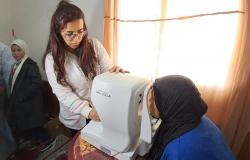LKing Mohammed VI chaired, on December 23, 2024 at the royal palace in Casablanca, a working session devoted to the revision of the Family Code. This meeting marks a major step in this process, twenty years after the initial implementation of the Moudawana. This legal monument, which had already marked a significant advance in women’s rights and the stability of families, is thus undergoing, under the enlightened supervision of the Sovereign, a revision dictated by the evolution of Moroccan society.
A carefully considered reform, where tradition and modernity seem to embark in a harmonious marriage, and which seeks a balance between conservatism and progressive aspirations. This is why the approach adopted by the Kingdom for this reform is to be welcomed.
No less than 100 proposals emerged from consultations carried out by the Body responsible for revising the Family Code, enriched by hearings with institutional, civil and religious actors. It is easy to imagine the lively debates around the table: modernize, but without clashing; reform, while preserving the religious and social constants of the country. The King, in his role as guarantor of Islamic values and social justice, exercised his royal arbitration, particularly on points where opinions could differ.
A method which demonstrates a desire for consensus and attention to detail, far from purely technical or imposed revisions. What distinguishes this new reform is precisely this ability to reconcile respect for religious standards, such as the principle of Maslaha (the general interest), and adaptation to contemporary societal realities. Proposals that move the lines Among the amendments envisaged, some particularly attract attention. The authorization for Moroccans living abroad to marry without the presence of two Muslim witnesses, if this proves impossible, is thus a recognition of the realities of the diaspora.
LThe granting of legal guardianship of children to the mother responsible for custody also rectifies what was perceived by many as an injustice. Equality is also progressing in other forms, such as the recognition of the wife’s domestic work in the calculation of common property. This provision, although symbolic, reflects a significant advance for women, often invisible in their contribution to the household. And what about the revision of the Nafaqa (alimony), now due upon the establishment of the marriage certificate? This could reduce abuse and better protect abandoned women.
But reform is not limited to legal adjustments. It is also a societal project to strengthen family justice, consolidate women’s rights, protect children and preserve the dignity of men. In short, an approach which reminds us, far from populist speeches, that the family, the basic unit of society, can only prosper by ensuring balance among all its components. However, let us not be naive: translating these proposals into clear, applicable and intelligible laws will not be an easy task. Contradictory judicial readings, sometimes divergent interpretations between judges, or even social resistance can be obstacles to the implementation of this reform.
This is why the King, aware of these challenges, insisted on the need for clarity and complementarity to avoid these pitfalls. The Sovereign’s desire is to place Morocco in a dynamic of openness and progress. By projecting itself beyond ideological divisions, this reform therefore reflects a bet on the future and a faith in the capacity of the Kingdom to evolve while remaining faithful to its identity. It will not be a panacea, but it promises to be a major step forward for a society in search of fairness and stability. While awaiting its legislative adoption, everyone can already glimpse the contours of a renovated Moudawana, faithful to the foundations of the Kingdom and up to the aspirations of the Moroccan people.






